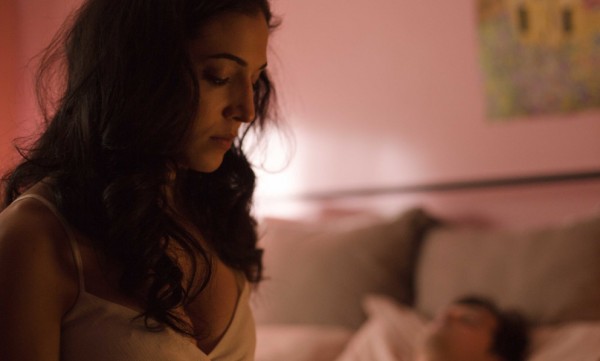
The RiotACT has spoken exclusively with Maria Cinque, mother of Joe Cinque, about the film adaptation of Helen Garner’s bestselling and award-winning book Joe Cinque’s Consolation: A True Story of Death, Grief and the Law, which premieres in Canberra at Palace Electric tonight.
Read Andrew Lampe’s review of the film here.
The film depicts the events surrounding the death of engineer Joe Cinque in Dickson on October 26, 1997, after his ANU law student girlfriend Anu Singh, gave him a lethal dose of heroin. She laced his coffee with Rohypnol first, had previously told friends of her intent to kill him, and was subsequently found guilty of manslaughter.
We sought out an interview with Mrs Cinque because much of the film’s pre-release publicity and news coverage had focused on the film-makers, the actors, and even Joe’s killer, Anu Singh. We felt it important that the feelings of the Cinques were not sidelined by those of their son’s killer. As it turns out, Maria Cinque explained that her silence was not because she hadn’t been asked but more because she didn’t want to talk to people.
“It’s very hard for me … I don’t have much to say … Everything has been said,” she explained sadly.
It is obvious that there could be no consolation for Maria Cinque or her family from the success of Helen Garner’s book, nor from the release of the film, which was shot in Canberra between April and June 2015 and has already garnered powerful audience reactions and laudatory reviews from its premieres at both the Melbourne and the Toronto film festivals.
However, it is also clear that Mrs Cinque has faith in the film’s writer-director, Sotiris Dounoukos, as well as in actor Jerome Meyer, who plays her son.
She had not yet seen the final version of the film when we spoke but from what she had seen was able to say plainly: “I think they [Dounoukos & Meyer] did a good job.”
In my film review for the RiotACT, I argued that the film didn’t quite achieve the same consolation for Joe Cinque as Ms Garner’s book did.
I put this view to Mrs Cinque and she offered insightfully: “Maybe that’s because Helen was there most of the time, half-way through the court [trials], so she saw what happened and she wrote down whatever she saw … she put a lot of feeling in.”
Regardless of whether or not the film is faithful to its source work or exists powerfully in its own right, Mrs Cinque ultimately hopes it highlights dramatically how the Cinques’ son was victimised, firstly by his girlfriend, and then in court.
“[I hope] the people like it when it comes out and they understand what happened and what they have done to my family,” she said.
Perhaps this is a consolation the film can achieve for the Cinque family, albeit a muted one.
Mr Dounoukos, who was an ANU law student at the time of Cinque’s death and has drawn on his own memories of life in the capital in the making of the film, will speak at tonight’s sold-out Palace Electric premiere screenings.
The film opens nationally on Thursday.












